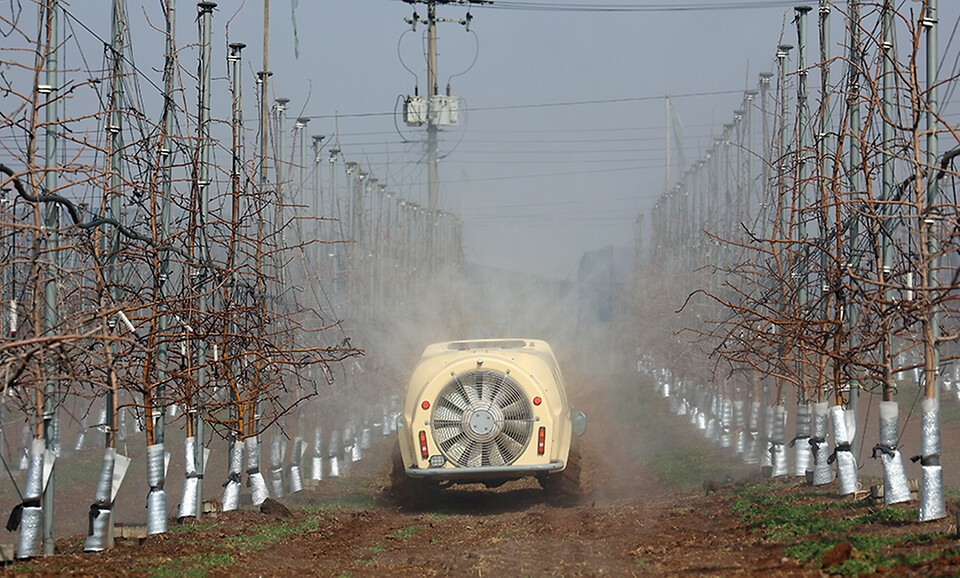
The government plans to increase the number of businesses in rural areas by an average of 5% annually, aiming for a total of 1.89 million by 2029. Additionally, along with renovating vacant rural houses and creating complex stay-type facilities, the goal is to increase the rural living population by an average of 3% per year.
The Ministry of Agriculture, Food and Rural Affairs (MAFRA) announced on the 27th that the '5th Basic Plan for Improving the Quality of Life of Farmers and Fishermen and Developing Rural Areas' (2025-2029) was approved in writing at the Committee for Improving the Quality of Life of Farmers and Fishermen and Developing Rural Areas held on the 24th.
Firstly, the government will promote the development of specialized industries in each region. To encourage local governments to attract businesses centered on specialized industries, regulations on land use within rural specialized zones will be eased, and a 'Voluntary Regulatory Innovation Zone System' will be enacted into law. This demonstrates the commitment to transforming rural areas at risk of extinction into innovation hubs. About 10 pilot locations will be designated by next year, and these areas will receive special exemptions related to farmland ownership and lease, as well as tax benefits.
The government will also support leading companies within the regions with improvements to living conditions and capacity building, and establish a 'Agri-Food Innovation Belt' by connecting academia and related industries. Furthermore, a regional economic revitalization fund of 64 billion KRW will be established by 2027.
In particular, the number of rural businesses is planned to increase from 1.35 million in 2022 to 1.89 million by 2029, representing an annual average increase of 5%. To achieve this, the 'K-Rural Tourism Belt' will be expanded to link tourism support in rural areas, encouraging foreigners to visit. A 'K-Heritage Project' will also be propulsion to turn UNESCO-designated Globally Important Agricultural Heritage Systems (GIAHS) into tourism resources. This includes supporting 'Rural Creatour,' a project where travel agencies and residents collaborate to develop rural tourism products, and fostering 1,000 local creators by 2029.
Measures to improve rural housing conditions and increase the rural living population by an average of 3% annually have also been proposed. Specifically, mid- to long-term rural spatial plans will be established for 139 cities and counties by next year, and the number of spatial regeneration support areas will be expanded to 172 by 2029. For vacant house management, a 'Special Act on Vacant House Renovation' will be enacted, and the number of regional revitalization towns and youth housing will be increased to 67 and 35, respectively, by 2029.
The government will also minimize blind spots in public and daily services in rural areas. The target for rural mobile clinics will be increased from 90,000 people this year to 180,000 by 2029, and 250 long-term care at-home medical centers will be operated nationwide by 2029. Additionally, a 'Plan to Activate Community-Based Economic and Social Services in Rural Areas' (2026-2028) will be established to expand the scope and duration of care services. After-school programs will be expanded to all elementary schools nationwide.
Furthermore, cultural accessibility will be enhanced through initiatives such as visiting libraries and museums, and mobile cultural delivery services. Opportunities for cultural enjoyment for vulnerable groups will be expanded by increasing the number of affiliated stores in rural areas for the integrated cultural voucher and raising the per-person usage amount.
In addition, the number of operating areas for 'Mobile Door-to-Door Markets' that visit villages to sell daily necessities and groceries will be increased from 9 this year to 30 by 2029, and services will be diversified to include side dish delivery, mobile laundry, and barber/beauty services.
A MAFRA official stated, "We will actively respond to rural population decline by closely communicating and cooperating between the government, local governments, and rural residents to smoothly implement detailed tasks, achieve tangible results, and create vibrant rural communities."
[Copyright (c) Global Economic Times. All Rights Reserved.]






























